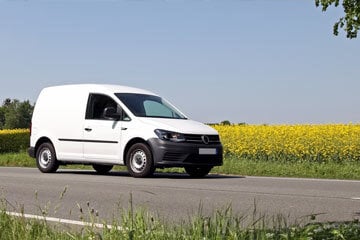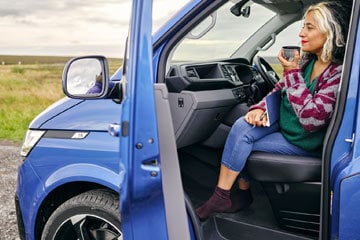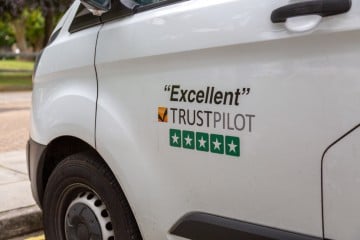The size of the fleet impacts your cost. The more vehicles you have, the greater the risk to the insurer.
The type of vehicles in the fleet could determine how risky your policy is. The value, power and security of the vehicles can affect the price of the policy.
The class of use for your fleet is important. A fleet of vans used by taxi drivers is likely to be more expensive than a fleet of cars used to travel to multiple sites.
The claims history of your fleet means the more claims your business has made, the more insurers might view you as a risk. This could then increase the price of your policy. Particularly high-risk drivers might be better off on a separate policy.
The age of your drivers is an important factor insurers will take into account. Younger, less experienced drivers are a higher risk and could drive your insurance costs up. For example, our data shows that the average comprehensive insurance policy cost for a van driver aged between 17 - 20 is £3,905(2). But for someone in the 26 - 30 age group it's £1,127(2), on average.
The type of cover you choose can affect how much you pay. A comprehensive policy is usually cheaper than any of the lower levels of cover.
The excess you pay you pay is also something insurers consider. Paying more voluntary excess could decrease your costa as it shows insurers you're only likely to claim when it's worth it.
The security of your vehicles is something you could improve to lower your insurance costs. This lowers the risk of the vans being stolen, damaged or vandalised.
2Confused.com data November 2023 - April 2024








